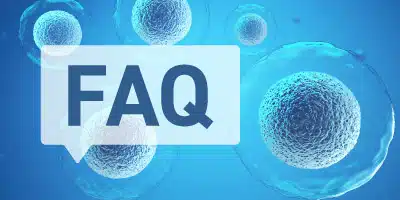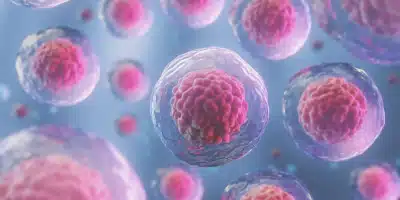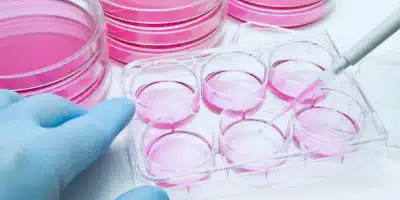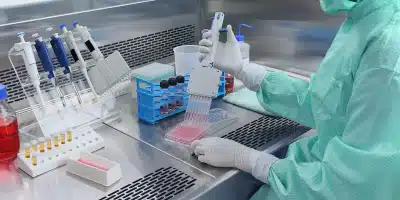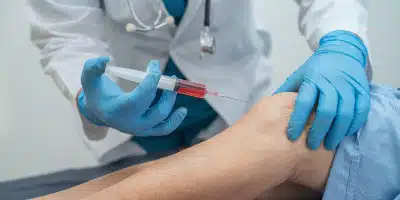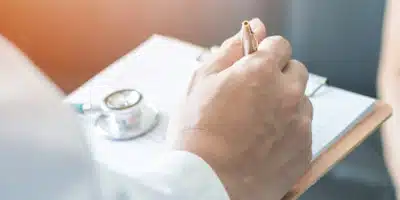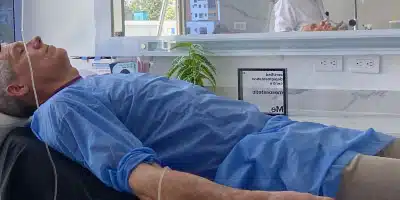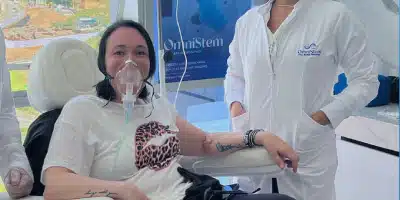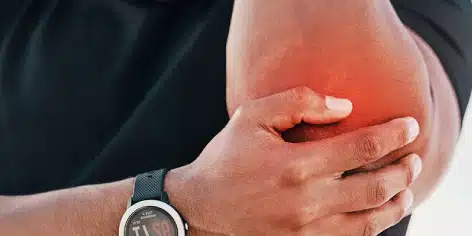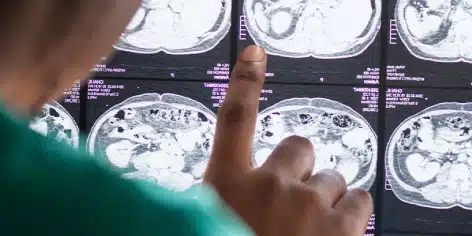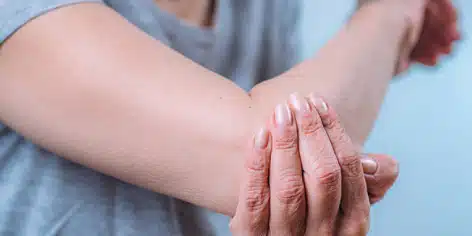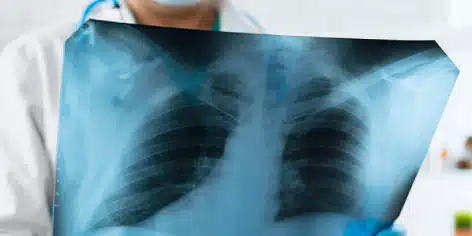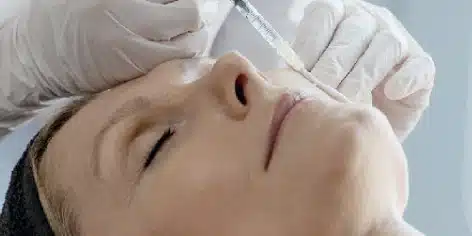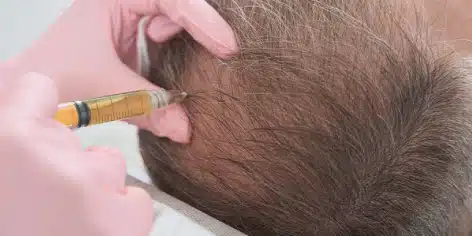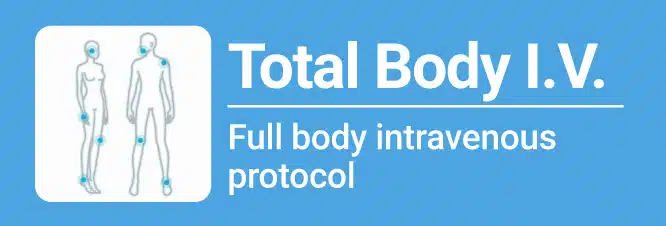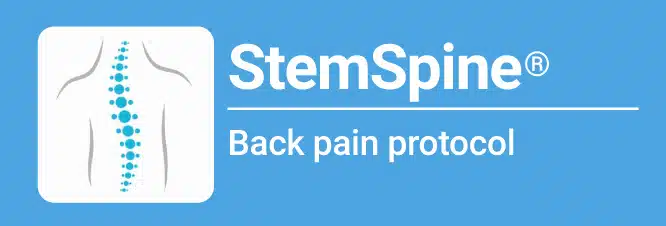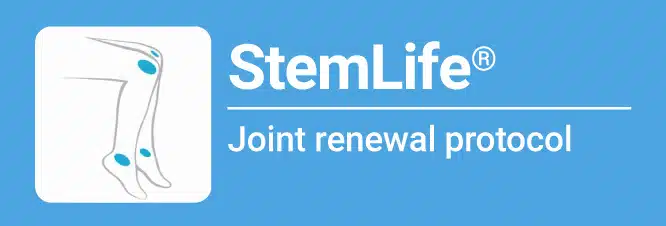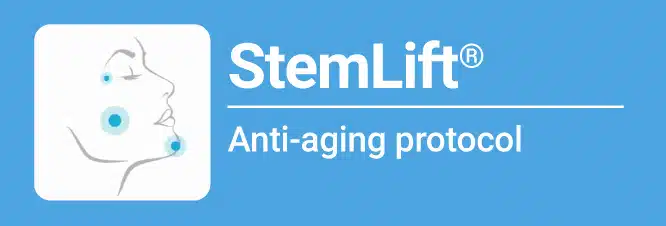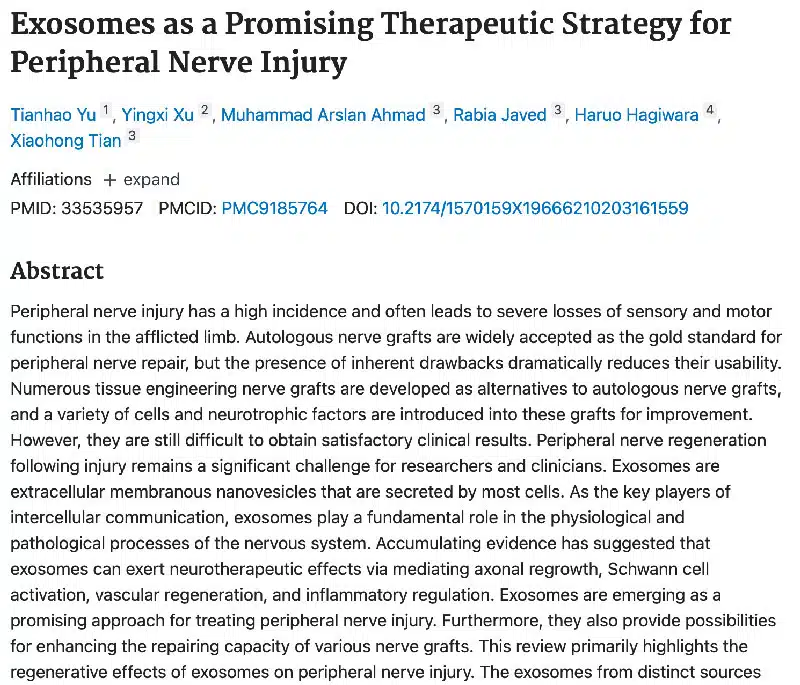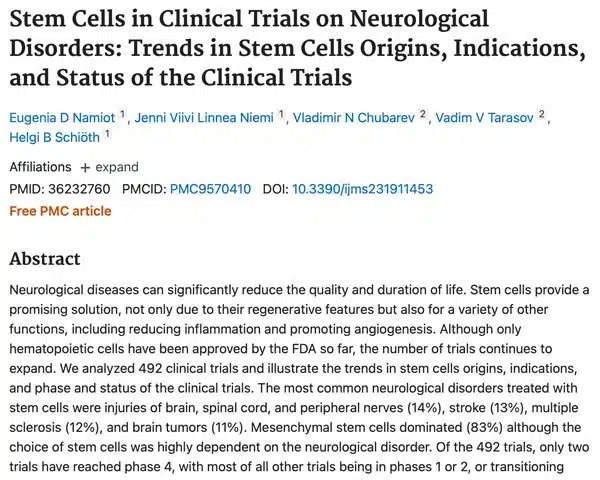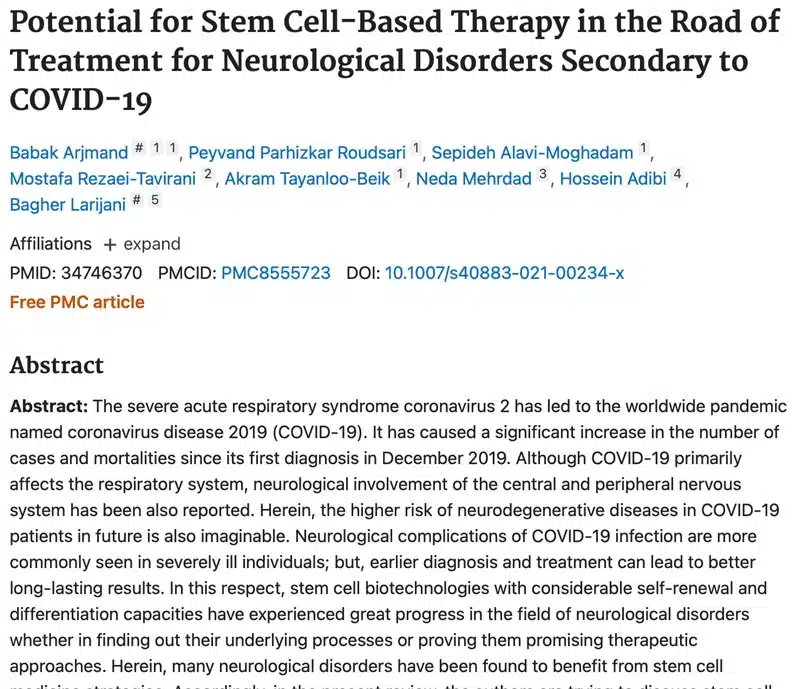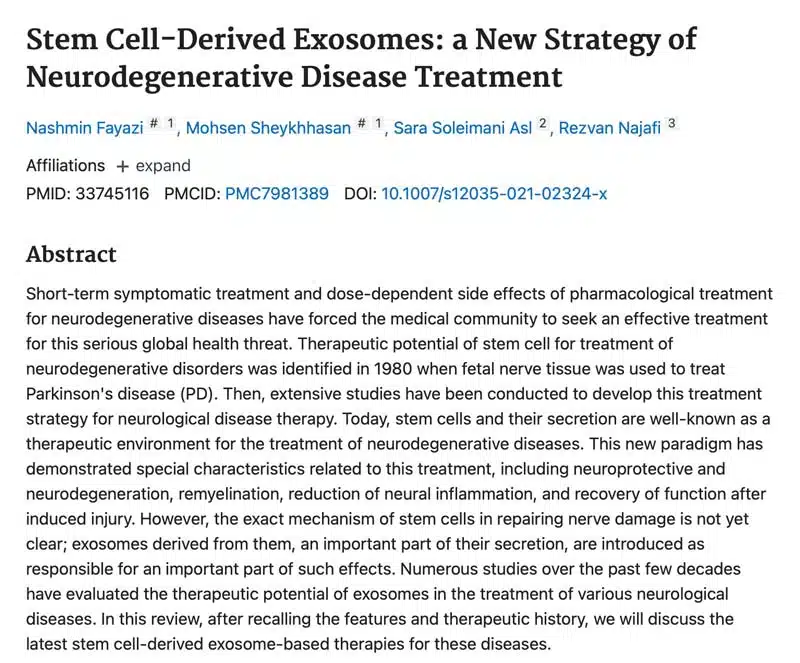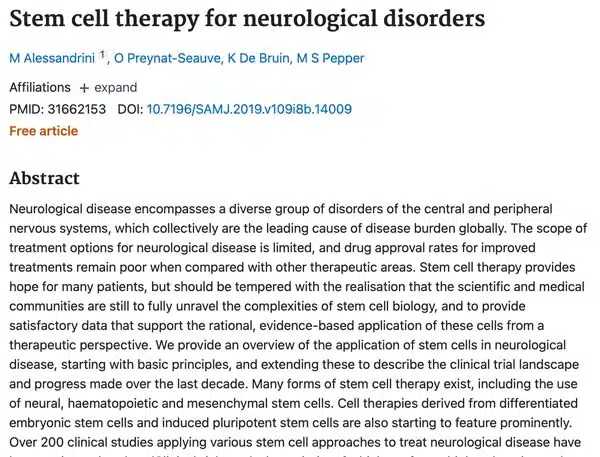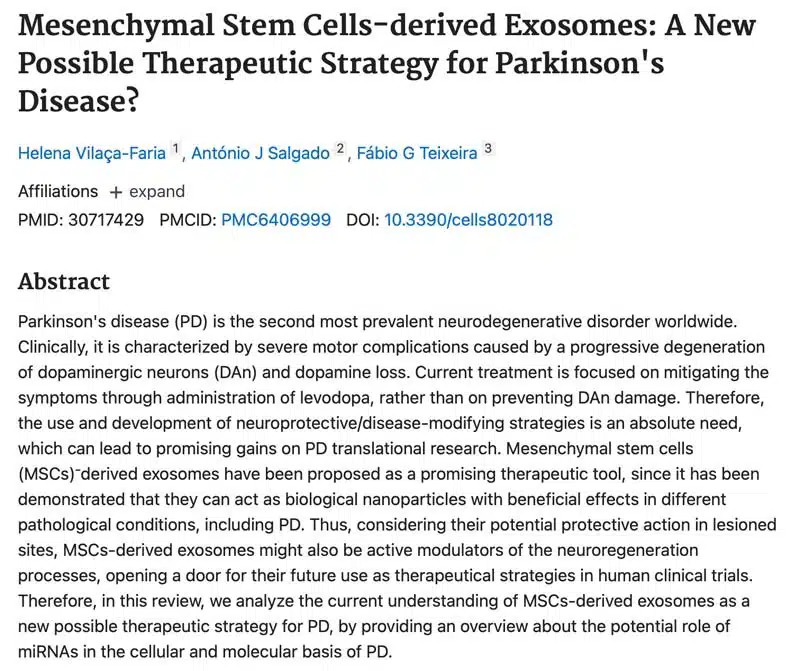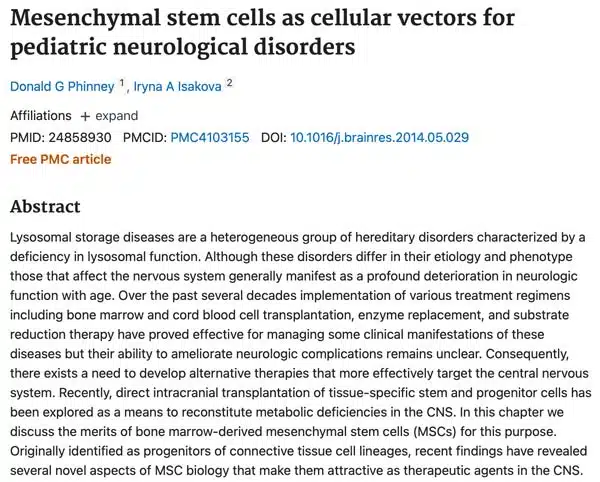- RESOURCE CENTER
Scientific Resources on Stem Cell Therapies
Explore Our Regenerative Medicine library
F.A.Q.
What Are Stem Cells?
Types of Stem Cells
Source of Our Stem Cells
Conditions Treated
Third-Party Publications
Is This Treatment Available in the U.S.?
Patient Testimonials
- CONDITIONS
Conditions treated with Regenerative Medicine
Regenerative medicine plays a critical role in modulating inflammation and immune responses, offering therapeutic potential for a variety of health conditions.
- PROTOCOLS
Our Signature Protocols
Tailored stem cell therapies, meticulously designed to target specific conditions.
- WELLNESS RETREATS
- TESTIMONIALS
- ABOUT
U-MSC Stem Cell and derived Exosome Treatments: Transforming Care for Neurological Disorders
For decades, neurological disorders had limited treatments, often leading to chronic suffering and compromised quality of life.
The application of U-MSC stem cells, augmented by the therapeutic potential of U-MSC derived exosomes, is contributing to significant advancements in the management and treatment of neurological conditions.
Umbilical Cord-derived Mesenchymal Stem Cell Therapies
U-MSC stem cells stand at the forefront of regenerative medicine, particularly in neurological disorders.
This type of stem cell is a game-changer for addressing conditions like Parkinson’s, Alzheimer’s, and traumatic brain injuries. Its potential is anchored in its ability to replace, repair, and rejuvenate damaged or malfunctioning neural cells.
The power of Regenerative Medicine targeting root causes of neurological disorders
Unlike conventional treatments, which primarily manage symptoms, regenerative approaches target the root causes.
U-MSC stem sell and exosomes aim to restore function by promoting cell regeneration, modulating inflammation, and enhancing neural communication.
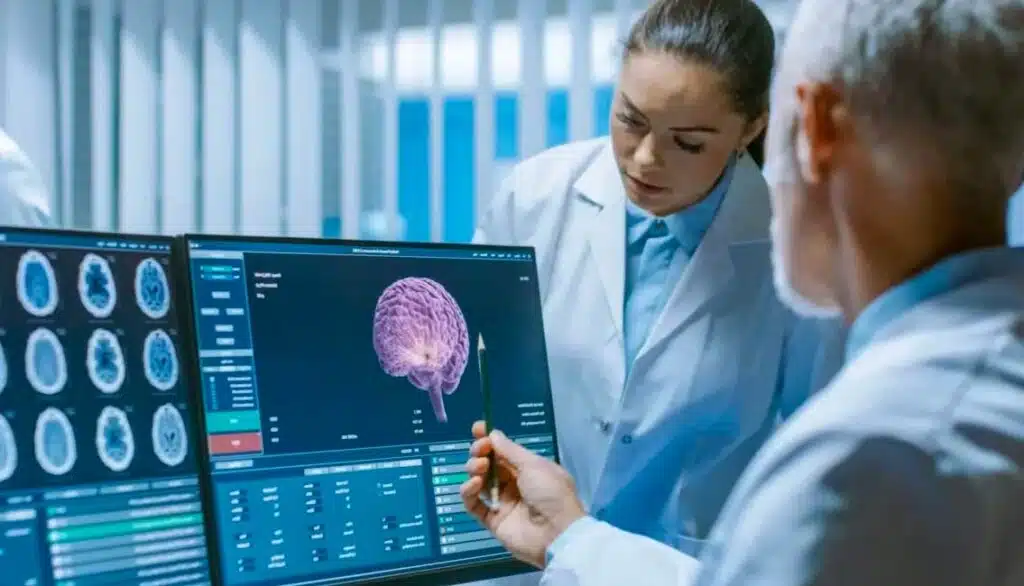
U-MSC Stem Cells
Umbilical cord mesenchymal stem cells are a type of multipotent stem cell derived from the umbilical cord tissue. The umbilical cord, which connects a baby to its mother in the womb, is a rich source of these cells.
U-MSC Derived Exosomes
Exosomes are tiny vesicles released by cells, including U-MSC. They contain a mixture of proteins, lipids, and RNA, playing a role in cell-to-cell communication, and carrying the the beneficial properties of U-MSC.
Mechanisms of actions of stem cells and exosomes in neurological disorders
In the intricate landscape of neurological conditions, stem cells and exosomes are making waves with their multifaceted mechanisms of action.
As we delve deeper into this frontier, stem cells and exosomes’ potential emerge as a promising hope for countless individuals affected by neurological conditions.
Cell Replacement
U-MSCs can potentially differentiate into neural cells, replacing damaged or lost neural tissue. This property can be particularly helpful in conditions where nerve cells are lost or damaged, such as in Parkinson’s disease, Alzheimer’s disease, and Multiple Sclerosis.
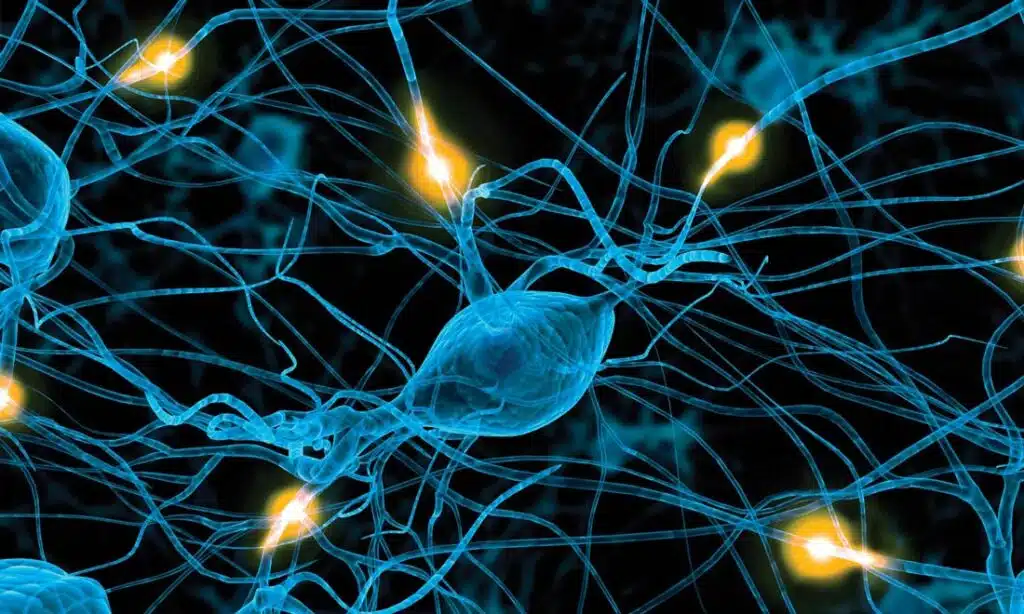
Modulation of Inflammation
Many neurological conditions involve inflammation, which can further damage neural tissue. U-MSCs can secrete anti-inflammatory factors, helping to calm inflammation in the brain or spinal cord.
Neuroprotection
U-MSC releases growth factors that can protect neurons from further damage and potentially promote survival in conditions like stroke or traumatic brain injury.
Promotion of Angiogenesis
New blood vessel formation is crucial for tissue repair, especially in areas with limited blood supply. UC-MSCs can promote this process, supporting neural tissue recovery.
Trophic Support
By releasing supportive growth factors and cytokines, U-MSC can aid in the survival and growth of neurons and other cells in the neural environment.
Cell Communication
Exosomes from U-MSC can transfer their contents to neurons, glial cells, and other cells in the nervous system, influencing their behavior and potentially promoting repair and regeneration.
1.
Yu, Tianhao; Xu, Yingxi; Ahmad, Muhammad Arslan; Javed, Rabia; Hagiwara, Haruo; Tian, Xiaohong
Cell-free therapy based on extracellular vesicles: a promising therapeutic strategy for peripheral nerve injury Journal Article
In: 2023.
@article{nokey,
title = {Cell-free therapy based on extracellular vesicles: a promising therapeutic strategy for peripheral nerve injury},
author = {Tianhao Yu and Yingxi Xu and Muhammad Arslan Ahmad and Rabia Javed and Haruo Hagiwara and Xiaohong Tian},
url = {https://stemcellres.biomedcentral.com/articles/10.1186/s13287-023-03467-5#:~:text=MSC%2Dderived%20exosomes%20have%20a,in%20the%20peripheral%20nerve%20microenvironment},
year = {2023},
date = {2023-09-19},
urldate = {2023-09-19},
abstract = {Peripheral nerve injury (PNI) is one of the public health concerns that can result in a loss of sensory or motor function in the areas in which injured and non-injured nerves come together. Up until now, there has been no optimized therapy for complete nerve regeneration after PNI. Exosome-based therapies are an emerging and effective therapeutic strategy for promoting nerve regeneration and functional recovery. Exosomes, as natural extracellular vesicles, contain bioactive molecules for intracellular communications and nervous tissue function, which could overcome the challenges of cell-based therapies. Furthermore, the bioactivity and ability of exosomes to deliver various types of agents, such as proteins and microRNA, have made exosomes a potential approach for neurotherapeutics. However, the type of cell origin, dosage, and targeted delivery of exosomes still pose challenges for the clinical translation of exosome therapeutics. In this review, we have focused on Schwann cell and mesenchymal stem cell (MSC)-derived exosomes in nerve tissue regeneration. Also, we expressed the current understanding of MSC-derived exosomes related to nerve regeneration and provided insights for developing a cell-free MSC therapeutic strategy for nerve injury.},
keywords = {},
pubstate = {published},
tppubtype = {article}
}
Peripheral nerve injury (PNI) is one of the public health concerns that can result in a loss of sensory or motor function in the areas in which injured and non-injured nerves come together. Up until now, there has been no optimized therapy for complete nerve regeneration after PNI. Exosome-based therapies are an emerging and effective therapeutic strategy for promoting nerve regeneration and functional recovery. Exosomes, as natural extracellular vesicles, contain bioactive molecules for intracellular communications and nervous tissue function, which could overcome the challenges of cell-based therapies. Furthermore, the bioactivity and ability of exosomes to deliver various types of agents, such as proteins and microRNA, have made exosomes a potential approach for neurotherapeutics. However, the type of cell origin, dosage, and targeted delivery of exosomes still pose challenges for the clinical translation of exosome therapeutics. In this review, we have focused on Schwann cell and mesenchymal stem cell (MSC)-derived exosomes in nerve tissue regeneration. Also, we expressed the current understanding of MSC-derived exosomes related to nerve regeneration and provided insights for developing a cell-free MSC therapeutic strategy for nerve injury.
2.
Namiot, Eugenia D; Niemi, Jenni Viivi Linnea; Chubarev, Vladimir N; Tarasov, Vadim V; Schiöth, Helgi B
Stem Cells in Clinical Trials on Neurological Disorders: Trends in Stem Cells Origins, Indications, and Status of the Clinical Trials. Journal Article
In: 2022.
@article{nokey,
title = {Stem Cells in Clinical Trials on Neurological Disorders: Trends in Stem Cells Origins, Indications, and Status of the Clinical Trials.},
author = {Eugenia D Namiot and Jenni Viivi Linnea Niemi and Vladimir N Chubarev and Vadim V Tarasov and Helgi B Schiöth},
url = {https://europepmc.org/article/MED/36232760},
year = {2022},
date = {2022-09-28},
urldate = {2022-09-28},
abstract = {Neurological diseases can significantly reduce the quality and duration of life. Stem cells provide a promising solution, not only due to their regenerative features but also for a variety of other functions, including reducing inflammation and promoting angiogenesis. Although only hematopoietic cells have been approved by the FDA so far, the number of trials continues to expand. We analyzed 492 clinical trials and illustrate the trends in stem cells origins, indications, and phase and status of the clinical trials. The most common neurological disorders treated with stem cells were injuries of brain, spinal cord, and peripheral nerves (14%), stroke (13%), multiple sclerosis (12%), and brain tumors (11%). Mesenchymal stem cells dominated (83%) although the choice of stem cells was highly dependent on the neurological disorder. Of the 492 trials, only two trials have reached phase 4, with most of all other trials being in phases 1 or 2, or transitioning between them (83%). Based on a comparison of the obtained results with similar works and further analysis of the literature, we discuss some of the challenges and future directions of stem cell therapies in the treatment of neurological diseases.},
keywords = {},
pubstate = {published},
tppubtype = {article}
}
Neurological diseases can significantly reduce the quality and duration of life. Stem cells provide a promising solution, not only due to their regenerative features but also for a variety of other functions, including reducing inflammation and promoting angiogenesis. Although only hematopoietic cells have been approved by the FDA so far, the number of trials continues to expand. We analyzed 492 clinical trials and illustrate the trends in stem cells origins, indications, and phase and status of the clinical trials. The most common neurological disorders treated with stem cells were injuries of brain, spinal cord, and peripheral nerves (14%), stroke (13%), multiple sclerosis (12%), and brain tumors (11%). Mesenchymal stem cells dominated (83%) although the choice of stem cells was highly dependent on the neurological disorder. Of the 492 trials, only two trials have reached phase 4, with most of all other trials being in phases 1 or 2, or transitioning between them (83%). Based on a comparison of the obtained results with similar works and further analysis of the literature, we discuss some of the challenges and future directions of stem cell therapies in the treatment of neurological diseases.
3.
Arjmand, Babak; Roudsari, Peyvand Parhizkar; Alavi-Moghadam, Sepideh; Rezaei-Tavirani, Mostafa; Tayanloo-Beik, Akram; Mehrdad, Neda; Adibi, Hossein; Larijani, Bagher
Potential for Stem Cell-Based Therapy in the Road of Treatment for Neurological Disorders Secondary to COVID-19 Journal Article
In: 2021.
@article{nokey,
title = {Potential for Stem Cell-Based Therapy in the Road of Treatment for Neurological Disorders Secondary to COVID-19},
author = {Babak Arjmand and Peyvand Parhizkar Roudsari and Sepideh Alavi-Moghadam and Mostafa Rezaei-Tavirani and Akram Tayanloo-Beik and Neda Mehrdad and Hossein Adibi and Bagher Larijani},
url = {https://doi.org/10.1007/s40883-021-00234-x},
year = {2021},
date = {2021-10-29},
urldate = {2021-10-29},
abstract = {Due to the substantial burden of neurological disorders in the health, economic, and social system of society, the emergence of neurological manifestations following COVID-19 (as a life-threatening pandemic) creates the need to use efficient and modern methods of treatment. Since stem cell-based methods have been efficient for a large number of neurological diseases, it seems that the use of mentioned methods is also effective in the process of improving neurological disorders caused by COVID-19. Hereupon, the current review aims to address stem cell-based approaches as treatments showing promise to neurological disorders related to COVID-19.},
keywords = {},
pubstate = {published},
tppubtype = {article}
}
Due to the substantial burden of neurological disorders in the health, economic, and social system of society, the emergence of neurological manifestations following COVID-19 (as a life-threatening pandemic) creates the need to use efficient and modern methods of treatment. Since stem cell-based methods have been efficient for a large number of neurological diseases, it seems that the use of mentioned methods is also effective in the process of improving neurological disorders caused by COVID-19. Hereupon, the current review aims to address stem cell-based approaches as treatments showing promise to neurological disorders related to COVID-19.
4.
Fayazi, Nashmin; Sheykhhasan, Mohsen; Asl, Sara Soleimani; Najafi, Rezvan
Stem Cell-Derived Exosomes: a New Strategy of Neurodegenerative Disease Treatment Journal Article
In: 2021.
@article{nokey,
title = {Stem Cell-Derived Exosomes: a New Strategy of Neurodegenerative Disease Treatment},
author = {Nashmin Fayazi and Mohsen Sheykhhasan and Sara Soleimani Asl and Rezvan Najafi},
url = {https://europepmc.org/article/MED/33745116},
year = {2021},
date = {2021-03-21},
abstract = {Short-term symptomatic treatment and dose-dependent side effects of pharmacological treatment for neurodegenerative diseases have forced the medical community to seek an effective treatment for this serious global health threat. Therapeutic potential of stem cell for treatment of neurodegenerative disorders was identified in 1980 when fetal nerve tissue was used to treat Parkinson's disease (PD). Then, extensive studies have been conducted to develop this treatment strategy for neurological disease therapy. Today, stem cells and their secretion are well-known as a therapeutic environment for the treatment of neurodegenerative diseases. This new paradigm has demonstrated special characteristics related to this treatment, including neuroprotective and neurodegeneration, remyelination, reduction of neural inflammation, and recovery of function after induced injury. However, the exact mechanism of stem cells in repairing nerve damage is not yet clear; exosomes derived from them, an important part of their secretion, are introduced as responsible for an important part of such effects. Numerous studies over the past few decades have evaluated the therapeutic potential of exosomes in the treatment of various neurological diseases. In this review, after recalling the features and therapeutic history, we will discuss the latest stem cell-derived exosome-based therapies for these diseases.},
keywords = {},
pubstate = {published},
tppubtype = {article}
}
Short-term symptomatic treatment and dose-dependent side effects of pharmacological treatment for neurodegenerative diseases have forced the medical community to seek an effective treatment for this serious global health threat. Therapeutic potential of stem cell for treatment of neurodegenerative disorders was identified in 1980 when fetal nerve tissue was used to treat Parkinson's disease (PD). Then, extensive studies have been conducted to develop this treatment strategy for neurological disease therapy. Today, stem cells and their secretion are well-known as a therapeutic environment for the treatment of neurodegenerative diseases. This new paradigm has demonstrated special characteristics related to this treatment, including neuroprotective and neurodegeneration, remyelination, reduction of neural inflammation, and recovery of function after induced injury. However, the exact mechanism of stem cells in repairing nerve damage is not yet clear; exosomes derived from them, an important part of their secretion, are introduced as responsible for an important part of such effects. Numerous studies over the past few decades have evaluated the therapeutic potential of exosomes in the treatment of various neurological diseases. In this review, after recalling the features and therapeutic history, we will discuss the latest stem cell-derived exosome-based therapies for these diseases.
5.
Alessandrini, M; Preynat-Seauve, O; Bruin, K De; Pepper, M S
Stem cell therapy for neurological disorders Journal Article
In: 2019.
@article{nokey,
title = {Stem cell therapy for neurological disorders},
author = {M Alessandrini and O Preynat-Seauve and K De Bruin and M S Pepper},
url = {http://www.samj.org.za/index.php/samj/article/view/12715},
year = {2019},
date = {2019-09-10},
urldate = {2019-09-10},
abstract = {Neurological disease encompasses a diverse group of disorders of the central and peripheral nervous systems, which collectively are the leading cause of disease burden globally. The scope of treatment options for neurological disease is limited, and drug approval rates for improved treatments remain poor when compared with other therapeutic areas. Stem cell therapy provides hope for many patients, but should be tempered with the realisation that the scientific and medical communities are still to fully unravel the complexities of stem cell biology, and to provide satisfactory data that support the rational, evidence-based application of these cells from a therapeutic perspective. We provide an overview of the application of stem cells in neurological disease, starting with basic principles, and extending these to describe the clinical trial landscape and progress made over the last decade. Many forms of stem cell therapy exist, including the use of neural, haematopoietic and mesenchymal stem cells. Cell therapies derived from differentiated embryonic stem cells and induced pluripotent stem cells are also starting to feature prominently. Over 200 clinical studies applying various stem cell approaches to treat neurological disease have been registered to date (Clinicaltrials.gov), the majority of which are for multiple sclerosis, stroke and spinal cord injuries. In total, we identified 17 neurological indications in clinical stage development. Few studies have progressed into large, pivotal investigations with randomised clinical trial designs. Results from such studies will be essential for approval and application as mainstream treatments in the future.},
keywords = {},
pubstate = {published},
tppubtype = {article}
}
Neurological disease encompasses a diverse group of disorders of the central and peripheral nervous systems, which collectively are the leading cause of disease burden globally. The scope of treatment options for neurological disease is limited, and drug approval rates for improved treatments remain poor when compared with other therapeutic areas. Stem cell therapy provides hope for many patients, but should be tempered with the realisation that the scientific and medical communities are still to fully unravel the complexities of stem cell biology, and to provide satisfactory data that support the rational, evidence-based application of these cells from a therapeutic perspective. We provide an overview of the application of stem cells in neurological disease, starting with basic principles, and extending these to describe the clinical trial landscape and progress made over the last decade. Many forms of stem cell therapy exist, including the use of neural, haematopoietic and mesenchymal stem cells. Cell therapies derived from differentiated embryonic stem cells and induced pluripotent stem cells are also starting to feature prominently. Over 200 clinical studies applying various stem cell approaches to treat neurological disease have been registered to date (Clinicaltrials.gov), the majority of which are for multiple sclerosis, stroke and spinal cord injuries. In total, we identified 17 neurological indications in clinical stage development. Few studies have progressed into large, pivotal investigations with randomised clinical trial designs. Results from such studies will be essential for approval and application as mainstream treatments in the future.
6.
Vilaça-Faria, Helena; Salgado, António J; 3, Fábio G Teixeira
Mesenchymal Stem Cells-derived Exosomes: A New Possible Therapeutic Strategy for Parkinson’s Disease? Journal Article
In: 2019.
@article{nokey,
title = {Mesenchymal Stem Cells-derived Exosomes: A New Possible Therapeutic Strategy for Parkinson’s Disease?},
author = {Helena Vilaça-Faria and António J Salgado and Fábio G Teixeira 3},
url = {https://europepmc.org/article/MED/30717429},
year = {2019},
date = {2019-02-02},
abstract = {Parkinson's disease (PD) is the second most prevalent neurodegenerative disorder worldwide. Clinically, it is characterized by severe motor complications caused by a progressive degeneration of dopaminergic neurons (DAn) and dopamine loss. Current treatment is focused on mitigating the symptoms through administration of levodopa, rather than on preventing DAn damage. Therefore, the use and development of neuroprotective/disease-modifying strategies is an absolute need, which can lead to promising gains on PD translational research. Mesenchymal stem cells (MSCs)⁻derived exosomes have been proposed as a promising therapeutic tool, since it has been demonstrated that they can act as biological nanoparticles with beneficial effects in different pathological conditions, including PD. Thus, considering their potential protective action in lesioned sites, MSCs-derived exosomes might also be active modulators of the neuroregeneration processes, opening a door for their future use as therapeutical strategies in human clinical trials. Therefore, in this review, we analyze the current understanding of MSCs-derived exosomes as a new possible therapeutic strategy for PD, by providing an overview about the potential role of miRNAs in the cellular and molecular basis of PD.},
keywords = {},
pubstate = {published},
tppubtype = {article}
}
Parkinson's disease (PD) is the second most prevalent neurodegenerative disorder worldwide. Clinically, it is characterized by severe motor complications caused by a progressive degeneration of dopaminergic neurons (DAn) and dopamine loss. Current treatment is focused on mitigating the symptoms through administration of levodopa, rather than on preventing DAn damage. Therefore, the use and development of neuroprotective/disease-modifying strategies is an absolute need, which can lead to promising gains on PD translational research. Mesenchymal stem cells (MSCs)⁻derived exosomes have been proposed as a promising therapeutic tool, since it has been demonstrated that they can act as biological nanoparticles with beneficial effects in different pathological conditions, including PD. Thus, considering their potential protective action in lesioned sites, MSCs-derived exosomes might also be active modulators of the neuroregeneration processes, opening a door for their future use as therapeutical strategies in human clinical trials. Therefore, in this review, we analyze the current understanding of MSCs-derived exosomes as a new possible therapeutic strategy for PD, by providing an overview about the potential role of miRNAs in the cellular and molecular basis of PD.
7.
Phinney, Donald G; Isakova, Iryna A
Mesenchymal stem cells as cellular vectors for pediatric neurological disorders Journal Article
In: 2014.
@article{nokey,
title = {Mesenchymal stem cells as cellular vectors for pediatric neurological disorders},
author = {Donald G Phinney and Iryna A Isakova},
url = {https://europepmc.org/article/MED/24858930},
year = {2014},
date = {2014-05-22},
abstract = {Lysosomal storage diseases are a heterogeneous group of hereditary disorders characterized by a deficiency in lysosomal function. Although these disorders differ in their etiology and phenotype those that affect the nervous system generally manifest as a profound deterioration in neurologic function with age. Over the past several decades implementation of various treatment regimens including bone marrow and cord blood cell transplantation, enzyme replacement, and substrate reduction therapy have proved effective for managing some clinical manifestations of these diseases but their ability to ameliorate neurologic complications remains unclear. Consequently, there exists a need to develop alternative therapies that more effectively target the central nervous system. Recently, direct intracranial transplantation of tissue-specific stem and progenitor cells has been explored as a means to reconstitute metabolic deficiencies in the CNS. In this chapter we discuss the merits of bone marrow-derived mesenchymal stem cells (MSCs) for this purpose. Originally identified as progenitors of connective tissue cell lineages, recent findings have revealed several novel aspects of MSC biology that make them attractive as therapeutic agents in the CNS. We relate these advances in MSC biology to their utility as cellular vectors for treating neurologic sequelae associated with pediatric neurologic disorders.},
keywords = {},
pubstate = {published},
tppubtype = {article}
}
Lysosomal storage diseases are a heterogeneous group of hereditary disorders characterized by a deficiency in lysosomal function. Although these disorders differ in their etiology and phenotype those that affect the nervous system generally manifest as a profound deterioration in neurologic function with age. Over the past several decades implementation of various treatment regimens including bone marrow and cord blood cell transplantation, enzyme replacement, and substrate reduction therapy have proved effective for managing some clinical manifestations of these diseases but their ability to ameliorate neurologic complications remains unclear. Consequently, there exists a need to develop alternative therapies that more effectively target the central nervous system. Recently, direct intracranial transplantation of tissue-specific stem and progenitor cells has been explored as a means to reconstitute metabolic deficiencies in the CNS. In this chapter we discuss the merits of bone marrow-derived mesenchymal stem cells (MSCs) for this purpose. Originally identified as progenitors of connective tissue cell lineages, recent findings have revealed several novel aspects of MSC biology that make them attractive as therapeutic agents in the CNS. We relate these advances in MSC biology to their utility as cellular vectors for treating neurologic sequelae associated with pediatric neurologic disorders.
1.
Yu, Tianhao; Xu, Yingxi; Ahmad, Muhammad Arslan; Javed, Rabia; Hagiwara, Haruo; Tian, Xiaohong
Cell-free therapy based on extracellular vesicles: a promising therapeutic strategy for peripheral nerve injury Journal Article
In: 2023.
@article{nokey,
title = {Cell-free therapy based on extracellular vesicles: a promising therapeutic strategy for peripheral nerve injury},
author = {Tianhao Yu and Yingxi Xu and Muhammad Arslan Ahmad and Rabia Javed and Haruo Hagiwara and Xiaohong Tian},
url = {https://stemcellres.biomedcentral.com/articles/10.1186/s13287-023-03467-5#:~:text=MSC%2Dderived%20exosomes%20have%20a,in%20the%20peripheral%20nerve%20microenvironment},
year = {2023},
date = {2023-09-19},
urldate = {2023-09-19},
abstract = {Peripheral nerve injury (PNI) is one of the public health concerns that can result in a loss of sensory or motor function in the areas in which injured and non-injured nerves come together. Up until now, there has been no optimized therapy for complete nerve regeneration after PNI. Exosome-based therapies are an emerging and effective therapeutic strategy for promoting nerve regeneration and functional recovery. Exosomes, as natural extracellular vesicles, contain bioactive molecules for intracellular communications and nervous tissue function, which could overcome the challenges of cell-based therapies. Furthermore, the bioactivity and ability of exosomes to deliver various types of agents, such as proteins and microRNA, have made exosomes a potential approach for neurotherapeutics. However, the type of cell origin, dosage, and targeted delivery of exosomes still pose challenges for the clinical translation of exosome therapeutics. In this review, we have focused on Schwann cell and mesenchymal stem cell (MSC)-derived exosomes in nerve tissue regeneration. Also, we expressed the current understanding of MSC-derived exosomes related to nerve regeneration and provided insights for developing a cell-free MSC therapeutic strategy for nerve injury.},
keywords = {},
pubstate = {published},
tppubtype = {article}
}
Peripheral nerve injury (PNI) is one of the public health concerns that can result in a loss of sensory or motor function in the areas in which injured and non-injured nerves come together. Up until now, there has been no optimized therapy for complete nerve regeneration after PNI. Exosome-based therapies are an emerging and effective therapeutic strategy for promoting nerve regeneration and functional recovery. Exosomes, as natural extracellular vesicles, contain bioactive molecules for intracellular communications and nervous tissue function, which could overcome the challenges of cell-based therapies. Furthermore, the bioactivity and ability of exosomes to deliver various types of agents, such as proteins and microRNA, have made exosomes a potential approach for neurotherapeutics. However, the type of cell origin, dosage, and targeted delivery of exosomes still pose challenges for the clinical translation of exosome therapeutics. In this review, we have focused on Schwann cell and mesenchymal stem cell (MSC)-derived exosomes in nerve tissue regeneration. Also, we expressed the current understanding of MSC-derived exosomes related to nerve regeneration and provided insights for developing a cell-free MSC therapeutic strategy for nerve injury.
2.
Namiot, Eugenia D; Niemi, Jenni Viivi Linnea; Chubarev, Vladimir N; Tarasov, Vadim V; Schiöth, Helgi B
Stem Cells in Clinical Trials on Neurological Disorders: Trends in Stem Cells Origins, Indications, and Status of the Clinical Trials. Journal Article
In: 2022.
@article{nokey,
title = {Stem Cells in Clinical Trials on Neurological Disorders: Trends in Stem Cells Origins, Indications, and Status of the Clinical Trials.},
author = {Eugenia D Namiot and Jenni Viivi Linnea Niemi and Vladimir N Chubarev and Vadim V Tarasov and Helgi B Schiöth},
url = {https://europepmc.org/article/MED/36232760},
year = {2022},
date = {2022-09-28},
urldate = {2022-09-28},
abstract = {Neurological diseases can significantly reduce the quality and duration of life. Stem cells provide a promising solution, not only due to their regenerative features but also for a variety of other functions, including reducing inflammation and promoting angiogenesis. Although only hematopoietic cells have been approved by the FDA so far, the number of trials continues to expand. We analyzed 492 clinical trials and illustrate the trends in stem cells origins, indications, and phase and status of the clinical trials. The most common neurological disorders treated with stem cells were injuries of brain, spinal cord, and peripheral nerves (14%), stroke (13%), multiple sclerosis (12%), and brain tumors (11%). Mesenchymal stem cells dominated (83%) although the choice of stem cells was highly dependent on the neurological disorder. Of the 492 trials, only two trials have reached phase 4, with most of all other trials being in phases 1 or 2, or transitioning between them (83%). Based on a comparison of the obtained results with similar works and further analysis of the literature, we discuss some of the challenges and future directions of stem cell therapies in the treatment of neurological diseases.},
keywords = {},
pubstate = {published},
tppubtype = {article}
}
Neurological diseases can significantly reduce the quality and duration of life. Stem cells provide a promising solution, not only due to their regenerative features but also for a variety of other functions, including reducing inflammation and promoting angiogenesis. Although only hematopoietic cells have been approved by the FDA so far, the number of trials continues to expand. We analyzed 492 clinical trials and illustrate the trends in stem cells origins, indications, and phase and status of the clinical trials. The most common neurological disorders treated with stem cells were injuries of brain, spinal cord, and peripheral nerves (14%), stroke (13%), multiple sclerosis (12%), and brain tumors (11%). Mesenchymal stem cells dominated (83%) although the choice of stem cells was highly dependent on the neurological disorder. Of the 492 trials, only two trials have reached phase 4, with most of all other trials being in phases 1 or 2, or transitioning between them (83%). Based on a comparison of the obtained results with similar works and further analysis of the literature, we discuss some of the challenges and future directions of stem cell therapies in the treatment of neurological diseases.
3.
Arjmand, Babak; Roudsari, Peyvand Parhizkar; Alavi-Moghadam, Sepideh; Rezaei-Tavirani, Mostafa; Tayanloo-Beik, Akram; Mehrdad, Neda; Adibi, Hossein; Larijani, Bagher
Potential for Stem Cell-Based Therapy in the Road of Treatment for Neurological Disorders Secondary to COVID-19 Journal Article
In: 2021.
@article{nokey,
title = {Potential for Stem Cell-Based Therapy in the Road of Treatment for Neurological Disorders Secondary to COVID-19},
author = {Babak Arjmand and Peyvand Parhizkar Roudsari and Sepideh Alavi-Moghadam and Mostafa Rezaei-Tavirani and Akram Tayanloo-Beik and Neda Mehrdad and Hossein Adibi and Bagher Larijani},
url = {https://doi.org/10.1007/s40883-021-00234-x},
year = {2021},
date = {2021-10-29},
urldate = {2021-10-29},
abstract = {Due to the substantial burden of neurological disorders in the health, economic, and social system of society, the emergence of neurological manifestations following COVID-19 (as a life-threatening pandemic) creates the need to use efficient and modern methods of treatment. Since stem cell-based methods have been efficient for a large number of neurological diseases, it seems that the use of mentioned methods is also effective in the process of improving neurological disorders caused by COVID-19. Hereupon, the current review aims to address stem cell-based approaches as treatments showing promise to neurological disorders related to COVID-19.},
keywords = {},
pubstate = {published},
tppubtype = {article}
}
Due to the substantial burden of neurological disorders in the health, economic, and social system of society, the emergence of neurological manifestations following COVID-19 (as a life-threatening pandemic) creates the need to use efficient and modern methods of treatment. Since stem cell-based methods have been efficient for a large number of neurological diseases, it seems that the use of mentioned methods is also effective in the process of improving neurological disorders caused by COVID-19. Hereupon, the current review aims to address stem cell-based approaches as treatments showing promise to neurological disorders related to COVID-19.
4.
Fayazi, Nashmin; Sheykhhasan, Mohsen; Asl, Sara Soleimani; Najafi, Rezvan
Stem Cell-Derived Exosomes: a New Strategy of Neurodegenerative Disease Treatment Journal Article
In: 2021.
@article{nokey,
title = {Stem Cell-Derived Exosomes: a New Strategy of Neurodegenerative Disease Treatment},
author = {Nashmin Fayazi and Mohsen Sheykhhasan and Sara Soleimani Asl and Rezvan Najafi},
url = {https://europepmc.org/article/MED/33745116},
year = {2021},
date = {2021-03-21},
abstract = {Short-term symptomatic treatment and dose-dependent side effects of pharmacological treatment for neurodegenerative diseases have forced the medical community to seek an effective treatment for this serious global health threat. Therapeutic potential of stem cell for treatment of neurodegenerative disorders was identified in 1980 when fetal nerve tissue was used to treat Parkinson's disease (PD). Then, extensive studies have been conducted to develop this treatment strategy for neurological disease therapy. Today, stem cells and their secretion are well-known as a therapeutic environment for the treatment of neurodegenerative diseases. This new paradigm has demonstrated special characteristics related to this treatment, including neuroprotective and neurodegeneration, remyelination, reduction of neural inflammation, and recovery of function after induced injury. However, the exact mechanism of stem cells in repairing nerve damage is not yet clear; exosomes derived from them, an important part of their secretion, are introduced as responsible for an important part of such effects. Numerous studies over the past few decades have evaluated the therapeutic potential of exosomes in the treatment of various neurological diseases. In this review, after recalling the features and therapeutic history, we will discuss the latest stem cell-derived exosome-based therapies for these diseases.},
keywords = {},
pubstate = {published},
tppubtype = {article}
}
Short-term symptomatic treatment and dose-dependent side effects of pharmacological treatment for neurodegenerative diseases have forced the medical community to seek an effective treatment for this serious global health threat. Therapeutic potential of stem cell for treatment of neurodegenerative disorders was identified in 1980 when fetal nerve tissue was used to treat Parkinson's disease (PD). Then, extensive studies have been conducted to develop this treatment strategy for neurological disease therapy. Today, stem cells and their secretion are well-known as a therapeutic environment for the treatment of neurodegenerative diseases. This new paradigm has demonstrated special characteristics related to this treatment, including neuroprotective and neurodegeneration, remyelination, reduction of neural inflammation, and recovery of function after induced injury. However, the exact mechanism of stem cells in repairing nerve damage is not yet clear; exosomes derived from them, an important part of their secretion, are introduced as responsible for an important part of such effects. Numerous studies over the past few decades have evaluated the therapeutic potential of exosomes in the treatment of various neurological diseases. In this review, after recalling the features and therapeutic history, we will discuss the latest stem cell-derived exosome-based therapies for these diseases.
5.
Alessandrini, M; Preynat-Seauve, O; Bruin, K De; Pepper, M S
Stem cell therapy for neurological disorders Journal Article
In: 2019.
@article{nokey,
title = {Stem cell therapy for neurological disorders},
author = {M Alessandrini and O Preynat-Seauve and K De Bruin and M S Pepper},
url = {http://www.samj.org.za/index.php/samj/article/view/12715},
year = {2019},
date = {2019-09-10},
urldate = {2019-09-10},
abstract = {Neurological disease encompasses a diverse group of disorders of the central and peripheral nervous systems, which collectively are the leading cause of disease burden globally. The scope of treatment options for neurological disease is limited, and drug approval rates for improved treatments remain poor when compared with other therapeutic areas. Stem cell therapy provides hope for many patients, but should be tempered with the realisation that the scientific and medical communities are still to fully unravel the complexities of stem cell biology, and to provide satisfactory data that support the rational, evidence-based application of these cells from a therapeutic perspective. We provide an overview of the application of stem cells in neurological disease, starting with basic principles, and extending these to describe the clinical trial landscape and progress made over the last decade. Many forms of stem cell therapy exist, including the use of neural, haematopoietic and mesenchymal stem cells. Cell therapies derived from differentiated embryonic stem cells and induced pluripotent stem cells are also starting to feature prominently. Over 200 clinical studies applying various stem cell approaches to treat neurological disease have been registered to date (Clinicaltrials.gov), the majority of which are for multiple sclerosis, stroke and spinal cord injuries. In total, we identified 17 neurological indications in clinical stage development. Few studies have progressed into large, pivotal investigations with randomised clinical trial designs. Results from such studies will be essential for approval and application as mainstream treatments in the future.},
keywords = {},
pubstate = {published},
tppubtype = {article}
}
Neurological disease encompasses a diverse group of disorders of the central and peripheral nervous systems, which collectively are the leading cause of disease burden globally. The scope of treatment options for neurological disease is limited, and drug approval rates for improved treatments remain poor when compared with other therapeutic areas. Stem cell therapy provides hope for many patients, but should be tempered with the realisation that the scientific and medical communities are still to fully unravel the complexities of stem cell biology, and to provide satisfactory data that support the rational, evidence-based application of these cells from a therapeutic perspective. We provide an overview of the application of stem cells in neurological disease, starting with basic principles, and extending these to describe the clinical trial landscape and progress made over the last decade. Many forms of stem cell therapy exist, including the use of neural, haematopoietic and mesenchymal stem cells. Cell therapies derived from differentiated embryonic stem cells and induced pluripotent stem cells are also starting to feature prominently. Over 200 clinical studies applying various stem cell approaches to treat neurological disease have been registered to date (Clinicaltrials.gov), the majority of which are for multiple sclerosis, stroke and spinal cord injuries. In total, we identified 17 neurological indications in clinical stage development. Few studies have progressed into large, pivotal investigations with randomised clinical trial designs. Results from such studies will be essential for approval and application as mainstream treatments in the future.
6.
Vilaça-Faria, Helena; Salgado, António J; 3, Fábio G Teixeira
Mesenchymal Stem Cells-derived Exosomes: A New Possible Therapeutic Strategy for Parkinson’s Disease? Journal Article
In: 2019.
@article{nokey,
title = {Mesenchymal Stem Cells-derived Exosomes: A New Possible Therapeutic Strategy for Parkinson’s Disease?},
author = {Helena Vilaça-Faria and António J Salgado and Fábio G Teixeira 3},
url = {https://europepmc.org/article/MED/30717429},
year = {2019},
date = {2019-02-02},
abstract = {Parkinson's disease (PD) is the second most prevalent neurodegenerative disorder worldwide. Clinically, it is characterized by severe motor complications caused by a progressive degeneration of dopaminergic neurons (DAn) and dopamine loss. Current treatment is focused on mitigating the symptoms through administration of levodopa, rather than on preventing DAn damage. Therefore, the use and development of neuroprotective/disease-modifying strategies is an absolute need, which can lead to promising gains on PD translational research. Mesenchymal stem cells (MSCs)⁻derived exosomes have been proposed as a promising therapeutic tool, since it has been demonstrated that they can act as biological nanoparticles with beneficial effects in different pathological conditions, including PD. Thus, considering their potential protective action in lesioned sites, MSCs-derived exosomes might also be active modulators of the neuroregeneration processes, opening a door for their future use as therapeutical strategies in human clinical trials. Therefore, in this review, we analyze the current understanding of MSCs-derived exosomes as a new possible therapeutic strategy for PD, by providing an overview about the potential role of miRNAs in the cellular and molecular basis of PD.},
keywords = {},
pubstate = {published},
tppubtype = {article}
}
Parkinson's disease (PD) is the second most prevalent neurodegenerative disorder worldwide. Clinically, it is characterized by severe motor complications caused by a progressive degeneration of dopaminergic neurons (DAn) and dopamine loss. Current treatment is focused on mitigating the symptoms through administration of levodopa, rather than on preventing DAn damage. Therefore, the use and development of neuroprotective/disease-modifying strategies is an absolute need, which can lead to promising gains on PD translational research. Mesenchymal stem cells (MSCs)⁻derived exosomes have been proposed as a promising therapeutic tool, since it has been demonstrated that they can act as biological nanoparticles with beneficial effects in different pathological conditions, including PD. Thus, considering their potential protective action in lesioned sites, MSCs-derived exosomes might also be active modulators of the neuroregeneration processes, opening a door for their future use as therapeutical strategies in human clinical trials. Therefore, in this review, we analyze the current understanding of MSCs-derived exosomes as a new possible therapeutic strategy for PD, by providing an overview about the potential role of miRNAs in the cellular and molecular basis of PD.
7.
Phinney, Donald G; Isakova, Iryna A
Mesenchymal stem cells as cellular vectors for pediatric neurological disorders Journal Article
In: 2014.
@article{nokey,
title = {Mesenchymal stem cells as cellular vectors for pediatric neurological disorders},
author = {Donald G Phinney and Iryna A Isakova},
url = {https://europepmc.org/article/MED/24858930},
year = {2014},
date = {2014-05-22},
abstract = {Lysosomal storage diseases are a heterogeneous group of hereditary disorders characterized by a deficiency in lysosomal function. Although these disorders differ in their etiology and phenotype those that affect the nervous system generally manifest as a profound deterioration in neurologic function with age. Over the past several decades implementation of various treatment regimens including bone marrow and cord blood cell transplantation, enzyme replacement, and substrate reduction therapy have proved effective for managing some clinical manifestations of these diseases but their ability to ameliorate neurologic complications remains unclear. Consequently, there exists a need to develop alternative therapies that more effectively target the central nervous system. Recently, direct intracranial transplantation of tissue-specific stem and progenitor cells has been explored as a means to reconstitute metabolic deficiencies in the CNS. In this chapter we discuss the merits of bone marrow-derived mesenchymal stem cells (MSCs) for this purpose. Originally identified as progenitors of connective tissue cell lineages, recent findings have revealed several novel aspects of MSC biology that make them attractive as therapeutic agents in the CNS. We relate these advances in MSC biology to their utility as cellular vectors for treating neurologic sequelae associated with pediatric neurologic disorders.},
keywords = {},
pubstate = {published},
tppubtype = {article}
}
Lysosomal storage diseases are a heterogeneous group of hereditary disorders characterized by a deficiency in lysosomal function. Although these disorders differ in their etiology and phenotype those that affect the nervous system generally manifest as a profound deterioration in neurologic function with age. Over the past several decades implementation of various treatment regimens including bone marrow and cord blood cell transplantation, enzyme replacement, and substrate reduction therapy have proved effective for managing some clinical manifestations of these diseases but their ability to ameliorate neurologic complications remains unclear. Consequently, there exists a need to develop alternative therapies that more effectively target the central nervous system. Recently, direct intracranial transplantation of tissue-specific stem and progenitor cells has been explored as a means to reconstitute metabolic deficiencies in the CNS. In this chapter we discuss the merits of bone marrow-derived mesenchymal stem cells (MSCs) for this purpose. Originally identified as progenitors of connective tissue cell lineages, recent findings have revealed several novel aspects of MSC biology that make them attractive as therapeutic agents in the CNS. We relate these advances in MSC biology to their utility as cellular vectors for treating neurologic sequelae associated with pediatric neurologic disorders.
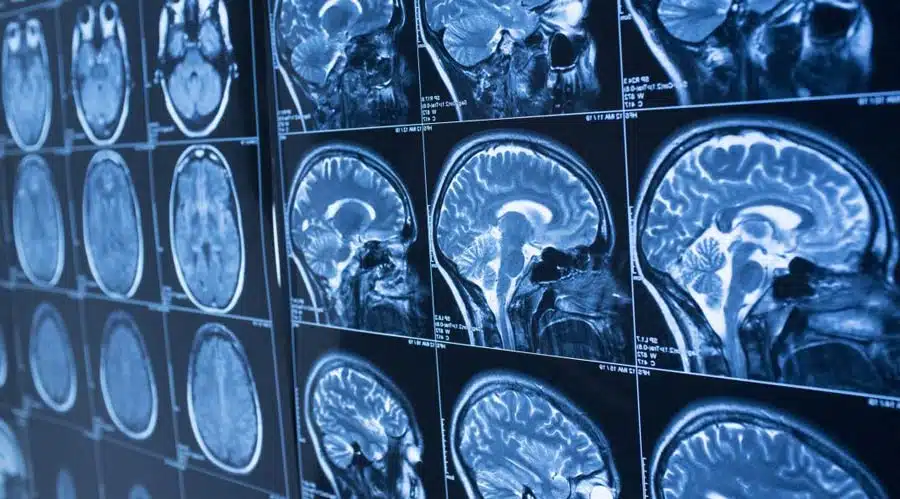
Regenerative medicine: A path to renewed neurological health
Step into the future of neurological care with Omni-Stem. Our cutting-edge therapies are redefining recovery possibilities for those battling neurological disorders. Don’t let traditional treatments limit your potential. Embrace innovation, trust in the science, and witness transformative results.
U-MSC stem cell therapies are being used to treat a wide range of neurological disorders, such as:
• Multiple Sclerosis
• Parkinson’s Disease
• Amyotrophic Lateral Sclerosis
• Guillain-Barré Syndrome
• Stroke Recovery
• Spinal Cord Injury
• Traumatic Brain Injury
• Huntington’s Disease

DISCOVER REGENERATIVE MEDICINE
Transform your battle against neurological disorders. Explore now
Explore Omni-Stem treatments today
Complete the form to speak with our patient advocates and learn more about Omni-Stem cell-based treatments.

Visit our resource center for a comprehensive collection of resources, studies, and recent advancements in Regenerative Medicine.
Stem cell treatments are currently deemed experimental and have not yet received FDA approval. As a result, such treatments are not permitted in the U.S. While this doesn’t imply that these treatments are ineffective, it does indicate that there’s limited scientific evidence supporting their use.
U-MSC stem cells are currently the most potent biologics available in regenerative medicine
Regenerative medicine treatments marks a significant shift in addressing conditions such as Parkinson’s, Alzheimer’s, and traumatic brain injuries. Its potential lies in its ability to replace, repair, and rejuvenate damaged or malfunctioning neural cells.

